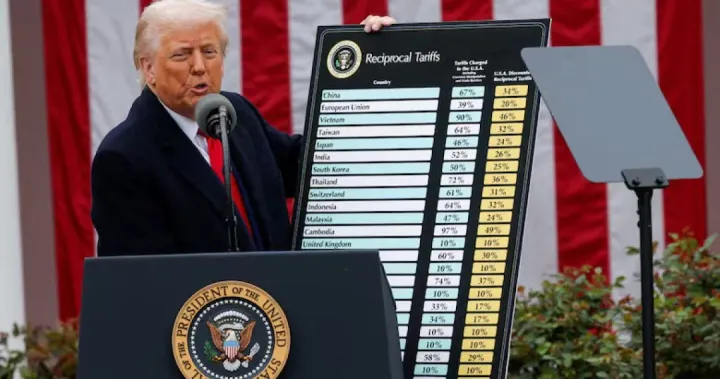Trump Tariffs Threaten BRICS, Global Economy Shaken
Trump’s 10% tariff threat on BRICS countries, including Indonesia, raises fears over global supply chains and a surge in world inflation.

A surprise move came from the United States after Donald Trump officially announced a 10% import tariff threat on BRICS countries—including Indonesia, Brazil, Russia, India, China, South Africa, Iran, and the United Arab Emirates. Branded as “Liberation Day,” the policy is set to take effect on August 1, 2025, should Trump return to power. The bold measure is claimed to protect the U.S. economy from dollar devaluation and curb the de-dollarization wave led by the BRICS bloc.
New Tariffs Trigger Global Domino Effect
Trump’s decision immediately sent shockwaves through global markets. As a major economic bloc, BRICS plays a central role in the supply of raw materials, energy, and manufactured goods worldwide. A 10% tariff automatically raises import costs in the U.S., pushing up consumer prices. International trade data shows similar tariff hikes have previously driven up inflation in America and triggered a decline in export demand from developing countries.
The Indonesian government quickly took tactical steps by offering to negotiate a $500 million deal for American products, including 75 Boeing aircraft, to reduce the potential tariff by up to 32%. Brazil pursued a similar diplomatic maneuver but faces a steeper 50% tariff threat. Iraq and Libya, while not BRICS members, are also in the crosshairs with 30% tariffs due to their foreign policy positions.
BRICS in the Midst of a Trade War
The U.S.’s aggressive stance toward BRICS is fueled by the group’s growing use of non-dollar currencies in global trade. BRICS nations are rapidly expanding transactions in yuan, ruble, and rupee, a move Washington views as undermining the U.S. dollar’s dominance. According to World Bank and IMF data, the BRICS bloc now accounts for over 35% of global trade volume in energy, commodities, and manufacturing.
Market reactions were immediate. The South African rand plunged 1% against the dollar, while Brazil’s real and Indonesia’s rupiah also came under pressure. Stock indexes for export and manufacturing sectors in BRICS exchanges have generally declined. Analysts are warning of a higher risk of global inflation, particularly for developing economies that heavily rely on U.S. exports.
Indonesia in the Crosshairs of Trump’s Tariff Talks
As a new BRICS+ member, Indonesia faces a major dilemma. Key sectors such as textiles, electronics, rubber, and palm oil could suffer if negotiations fail and tariffs are imposed. The Trade Minister stated that the government is actively pursuing trade diplomacy to avoid being labeled an “economic enemy” by the U.S. The offer to purchase Boeing aircraft is a central strategy to maintain export access to the American market.
However, if negotiations stall, Indonesia risks a real decline in product competitiveness, job losses in export industries, and rupiah instability. Moreover, higher import prices from the U.S. could add to domestic inflationary pressure.
Global Market Reaction and Long-Term Risks
Beyond Indonesia, global markets are responding to this policy with alarm. Many warn of a domino effect—potentially a large-scale trade war—if BRICS countries retaliate. The bloc has signaled possible reciprocal tariffs and an acceleration of export market diversification, as reported by Reuters and Bloomberg.
In macroeconomic terms, the tariff policy adds pressure to supply chains still recovering post-pandemic. Electronics, automotive, and agriculture are the most vulnerable sectors to distribution disruptions and price hikes.
The new U.S. tariffs on BRICS countries have become a central issue in this year’s geopolitical and economic landscape. With the potential to trigger a new trade war and accelerate a shift in the world economic order, this policy brings real consequences for market stability, consumer purchasing power, and the fate of industries across many developing countries. Now, all eyes are on the high-stakes negotiations between the United States and BRICS nations, the results of which will set the course for the world economy going forward.





Comments ()